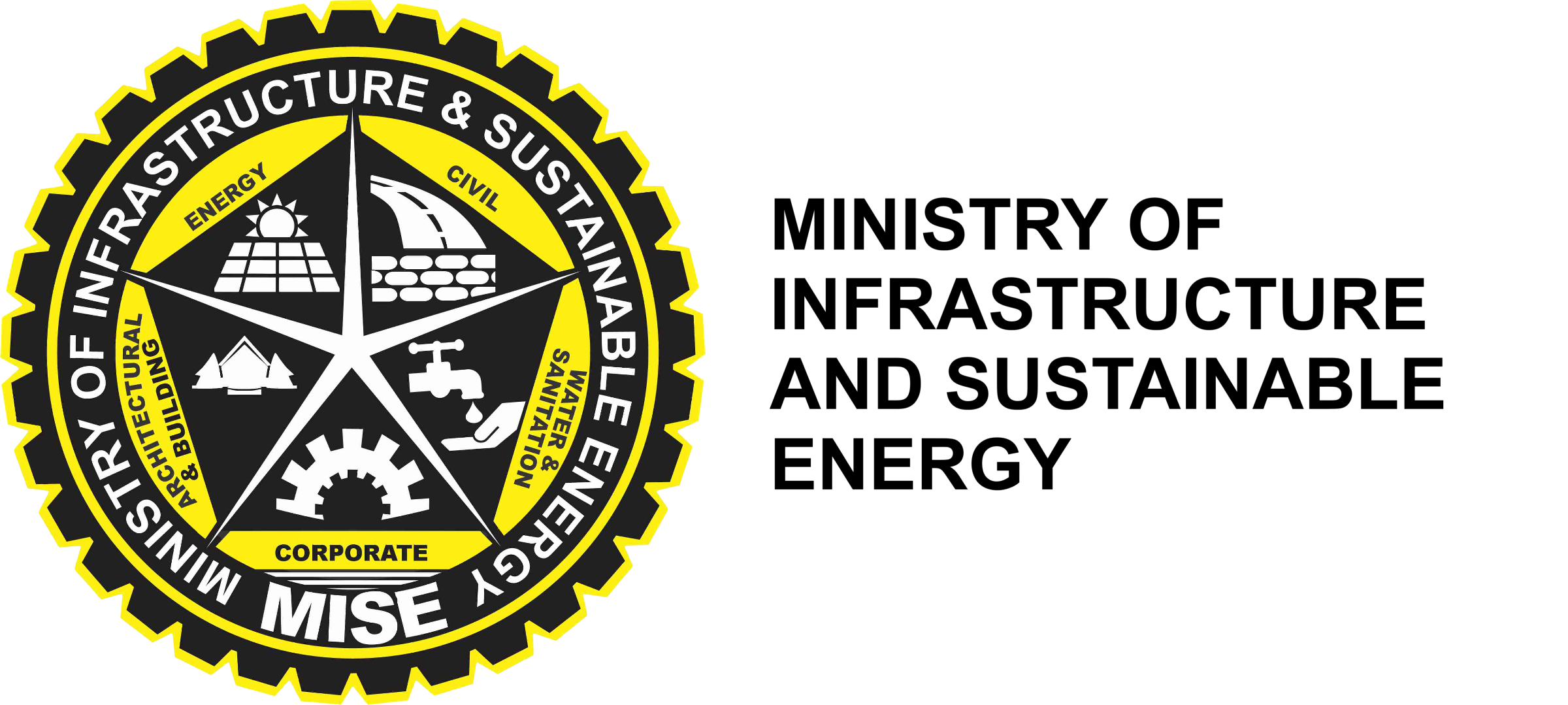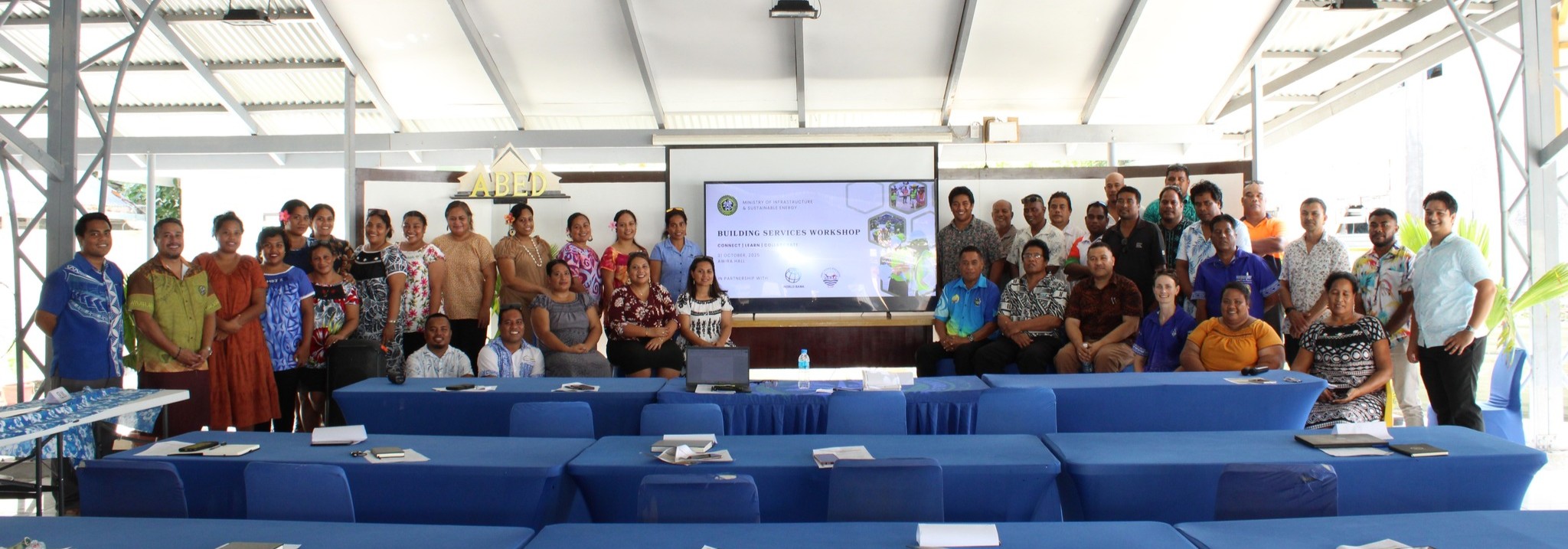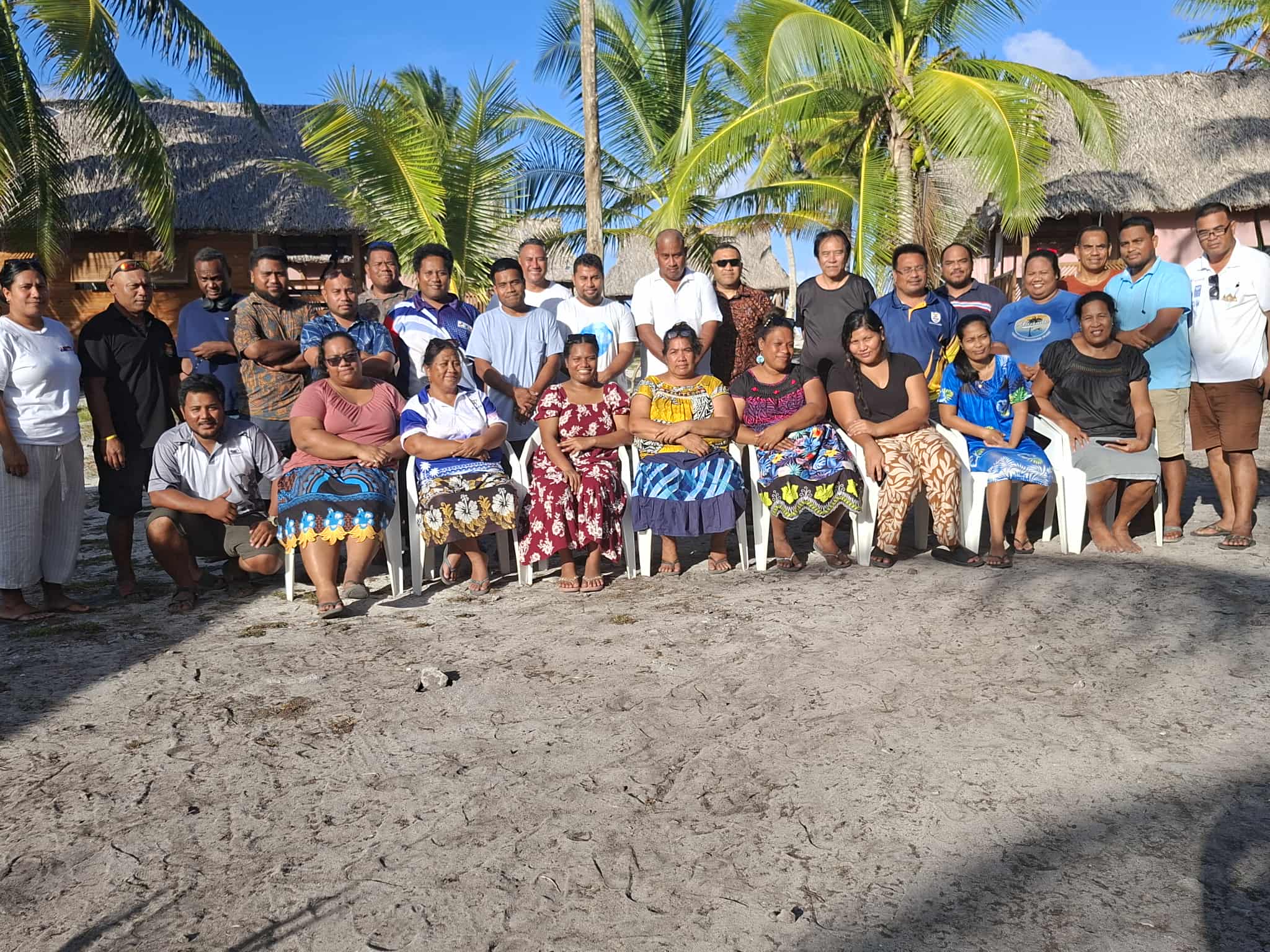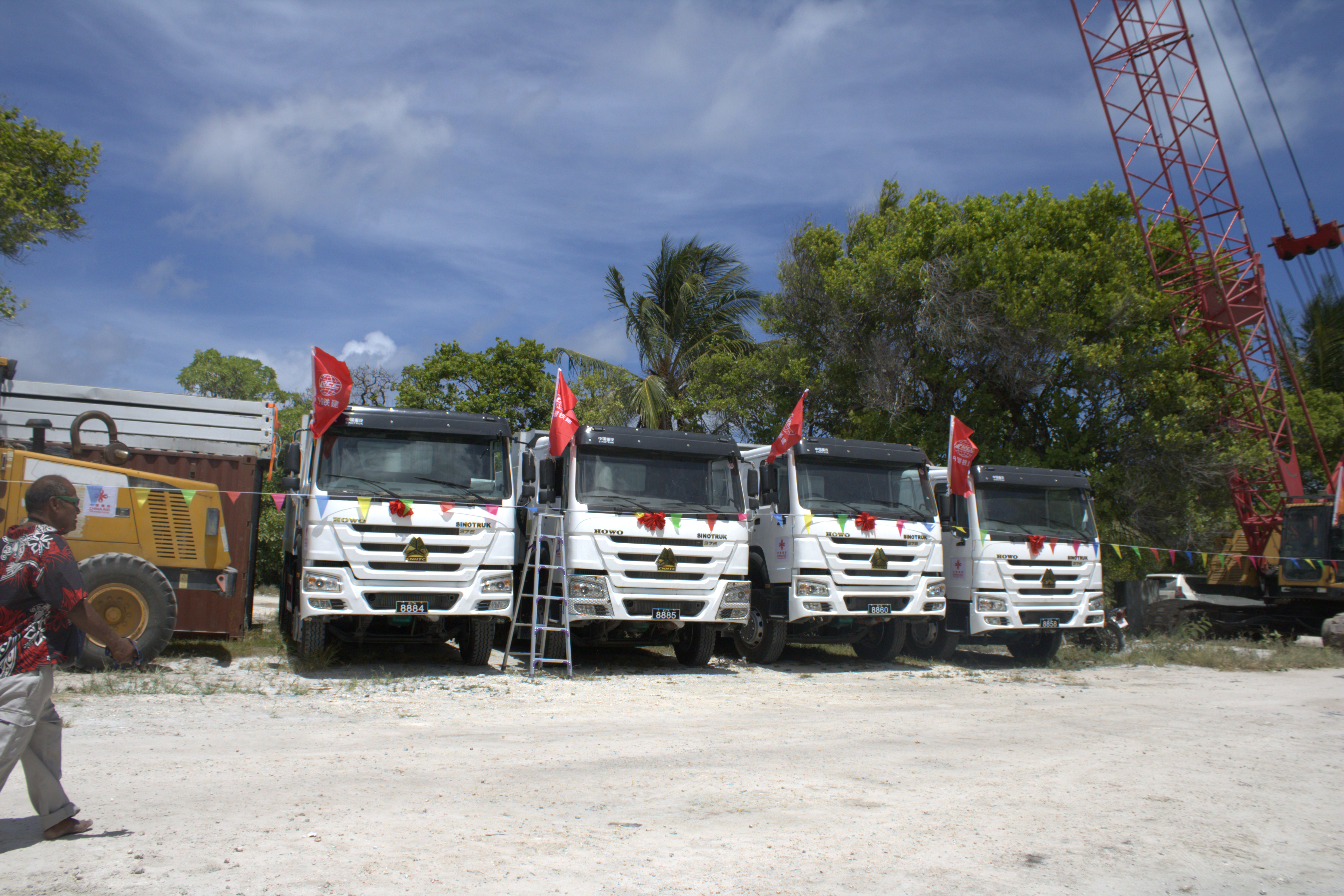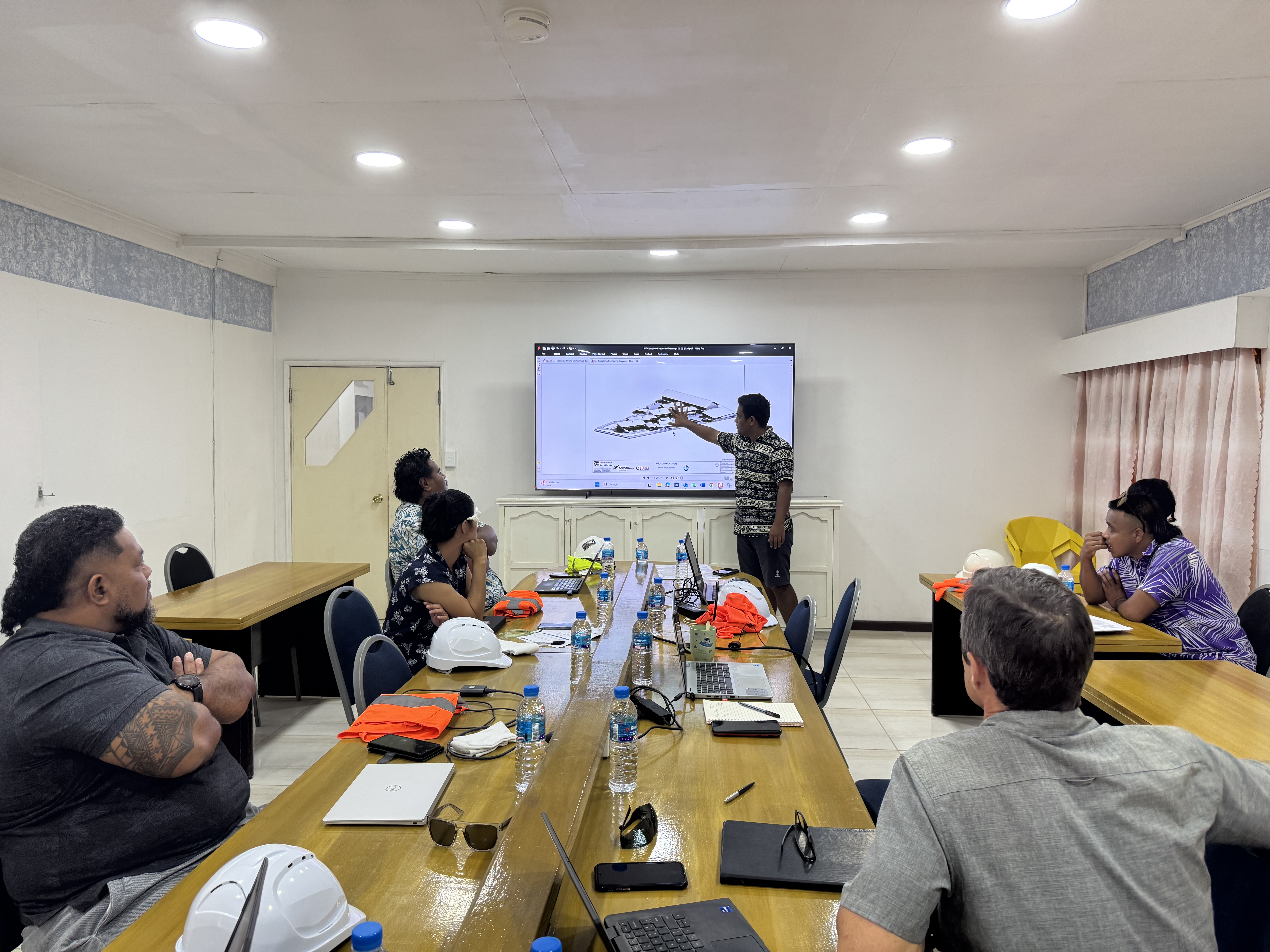Department
Civil Engineering Department
The Civil Engineering Department (CED) is mandatory to provide planning and management, engineering investigation and recommendation, and inspection and monitoring of civil infrastructures both on air, land and marine, except buildings.
The CED consists of about 50 permanent staffs stationed at two different sites. One unit at the MISE headquarters sitting up to five employees including engineers and inspectors. The other sites are located at the Civil Yard office holding up 46 employees to cover construction, maintenance, and mechanic works.
The CED is currently managing and implementing a number of ongoing civil engineering projects in line with Government’s manifesto and the Kiribati Development Plan (KDP) for the next four years and paved the infrastructure to meet Kiribati Vision in 20 years’ time (KV20). These projects include the following;
- Outer island Road Upgrading Project funded by the Government targeting the first four outer islands with approximately 73 km of paved roads. The first islands include Butaritari, Abemama, Tab North and Nikunau. The existing road to Outer Islands is to be upgraded using geocell concrete surface, and airfield runway is to be sealed with rigid pavement.
- KOITIIP is World Bank and Asian Development Bank (ADB) funded project to improve maritime infrastructures targeting four islands including Tab South, Nonouti, Beru and Abaiang.
- The upgrading to the S.Tarawa feeder roads targets 6 km of road from Anraei to Tanaea, Buota, Tekawai ae Boou and Temaiku loop road.
- On-going maintenance to existing civil infrastructures such as seawalls, roads and causeways both in the rural and urban areas are part of the CED work plans.
- Ongoing services on MISE flee machines in addition to procuring more machines.
To be efficient in the implementation of the construction and maintenance role, the CED owns, operates and maintains a fleet of heavy vehicles, plants and equipment.
Corporate Services Department
The Corporate Services Department is headed by the Secretary, will be responsible for policy development and planning, discipline, execution, and oversight of the sub-divisional levels of Finance & Accounting, Administration, Human Resource, Research, Project Planning, and Information and Communication.
The Department is also responsible for the management of activities related to the oversight and supervision of MISE Technical Divisions through or by way of the Director General, and SOEs that are under the purview of the MISE.
Energy Planning Department
Energy Planning Department (EPD)
The Energy Planning Department (EPD) operates under the Ministry of Infrastructure and Sustainable Energy (MISE) and serves as the lead regulatory authority for the national energy sector. The Department is mandated to perform monitoring, supervisory, and regulatory functions to ensure the effective implementation of the Energy Acts and related regulations.
The EPD provides independent oversight of energy regulation across all islands of Kiribati, ensuring consistent enforcement, compliance, and performance within the electricity and petroleum industries. Its work is central to promoting a safe, reliable, and sustainable energy sector that supports national development goals and aligns with the Kiribati Energy Act 2022.
Key Functions of the EPD:
- Serve as the national energy data repository.
- Conduct inspections of petroleum storage facilities and issue storage licenses.
- Promote and facilitate energy efficiency initiatives and the introduction of energy-efficient technologies and products.
- Grant permits for renewable energy (RE) projects and licenses for electricity generation projects.
- Grant permits to local electrical contractors in accordance with regulatory requirements.
- Assist government entities in conducting energy audits, electrical surveys, and testing new electrical installations for residential and public facilities.
Organizational Structure:
- Electrical Regulation Unit
- Energy Efficiency Unit
- Renewable Energy Unit
- Petroleum Regulation Unit
- Policy, Planning and Management Unit


Overview
The Water and Sanitation Engineering Division (WSED) is mandated to ensure that the people of Kiribati have reliable access to safe and sufficient water supplies and improved sanitation facilities and practices.
Main Goal:
“To increase inclusive and sustainable access to potable water and safe sanitation systems through risk-informed and climate-resilient innovations.”
Key Responsibilities
WSED oversees, coordinates, and implements various water and sanitation projects across Kiribati, with support from multiple development partners. The Department ensures that all programs align with national goals for sustainable water management, climate resilience, and community well-being.
Ongoing Projects and Initiatives
Water Scarcity Project - Focuses on developing an Asset Management Plan, improving solar water reticulation systems, and maintaining desalination plants across the outer islands.
WASH from the Start - Aims to support surveying, monitoring, and planning for the repair and rehabilitation of WASH facilities, particularly in healthcare centres and schools. The project also promotes WASH awareness at both community and institutional levels.
South Tarawa Sanitation Project (STSP) - Works to expand access to the existing 3Bs (Bik. Bai. Bet) sewage infrastructure, improve fecal sludge management, and strengthen operation and maintenance (O&M) of sanitation systems, including saltwater supply and sewerage networks. In addition, the project also focuses on improving sanitation on four villages on South Tarawa, namely Nanikaai, Teaoraereke West, Abarao and Ananau Causeway, through construction of household and communal onsite sanitation facilities. The primary objective of the project is to scale up access to safely managed sanitation to the people on South Tarawa and to strengthen the institutional capacity of MISE and PUB as service providers.
South Tarawa Water Supply Project (STWSP) - Focuses on the construction of two desalination plants (Betio and McKenzie), the procurement of a water distribution network, and water management services. The project also incorporates Water Awareness Programs, Sanitation Pilots, and Water Reserve Management initiatives. The project aims to provide potable water to South Tarawa and Betio, from the Betio and McKenzie desalination plants, on a 24/7 basis.
Governance for Resilience Project - Scope of works for this project is on the two islands which are North Tarawa and Banaba which focused on the maintenance and operation of existing rainwater harvesting systems through risk informed decision approach. The project aims to improve the existing rainwater harvesting systems in providing potable water to the local community on North Tarawa and Banaba. https://www.undp.org/pacific/gov4res
Contact Information:
📞 Phone: 74026192 / 63030120
📠 Extension: 214 / 215
✉️ Email: wsed@mise.gov.ki
WSED Team
Full Name: | Position | |
Santanu Lahiri | Director |
|
Tiibwe Taraua | Principal Water and Sanitation Engineer |
|
Tepepe Taurannang | Senior Sanitation Engineer |
|
Martin Mataio | Water Engineer |
|
Bwetina Riiua | Water Security Officer |
|
Ruuta James | Water Quality Monitoring Officer |
|
Bwerea Buramte | Water Management Officer |
|
Rubeaua Iannang | Sanitation Officer | sanitation.officer@mise.gov.ki
|
Kitareti Burangke | Water and Sanitation Technician | |
Tekaieti Arinoko | Water and Sanitation Technician | |
Burebure Tibwere | Water and Sanitation Technician | |
Teretia Mamau | Water and Sanitation Technician | |
Kumon Henry | Water and Sanitation Technician |
Architectural & Building Engineering Department
The Ministry of Infrastructure provides a range of technical support services to the public in the of building designs, building permits, advice on a variety of technical issues relating to water, sanitation, electricity, and energy and much more. Below offers some of the other technical issues and description of the duties and functions of the Division.
